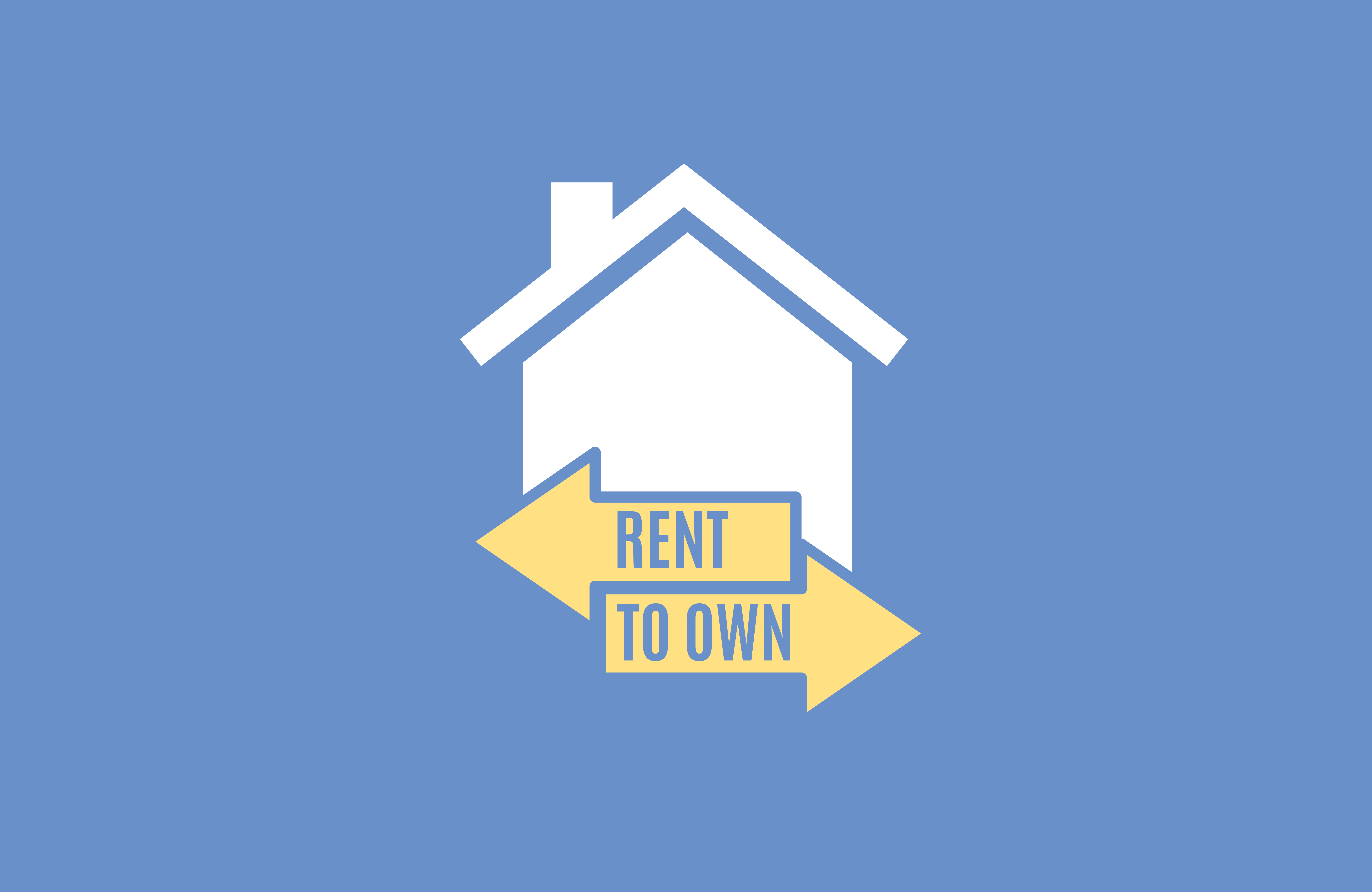
What is Rent-to-Own and How Does it Work?
What is Rent-to-Own and How Does it Work?
What is Rent to Own?
You might have heard the phrase rent-to-own before, but what does it mean?
Rent-to-own is a lease or agreement which allows potential buyers to rent a home with the goal of eventually purchasing the home before the lease expires.
In some rent-to-own agreements, known as Lease Option Agreements, the tenant has the option to purchase the property at an agreed-upon price, but can also choose not to purchase the property.
In a Lease Option Agreement, the tenant will pay an upfront fee, known as an option fee. The option fee allows the tenant the convenience of walking away from the house at the end of the lease without facing penalties. If the tenant decides to purchase the home, then the option fee will be credited toward a downpayment on the home. If they walk away, the fee is non-refundable. While the tenant might have the option of not purchasing the property, the seller is obligated to sell the property should the tenant exercise their right to purchase it.
Another type of rent-to-own agreement is a Lease Purchase Agreement, which mandates that the tenant must purchase the property at some point during their lease. Often with Lease Purchase Agreements, the tenant-buyers are held responsible for the maintenance and upkeep of the home.
In both types of rent-to-own agreements, both parties will come to a written agreement on the sales price of the home. Often the sales price will account for projected increases in home values. If the price ends up being higher than the actual value of the home, the buyer might have the chance to walk away from the deal, depending on the agreement. If the sales price ends up being lower than the actual value of the home, then the buyer benefits.
You might be wondering: What are the advantages of a rent-to-own agreement?
Benefits for Buyers
Rent-to-own can be a good option for people who want to become homeowners but are not financially ready for a mortgage.
Securing a long-term lease can give prospective homebuyers time to organize their finances, save for a downpayment, or improve their credit.
It also provides tenants with a rare opportunity to live in a home before purchasing it. Not to mention, rent-to-own agreements can help save on moving costs.
In most agreements, an upfront option fee (if it is a Lease Option Agreement) and a fraction of the monthly rent will be set aside for a downpayment. This is helpful for prospective buyers who would otherwise have a hard time saving up for a downpayment.
Benefits for Sellers
For those that do not need to sell their property immediately, a rent-to-own agreement could be a convenient way to earn rental income while having peace of mind that their property will sell within a specific time frame.
By offering flexibility and convenience for the potential buyers, sellers could potentially list their homes at a higher sales price.
Plus, a potential buyer is more likely to maintain the property and treat it like their own, minimizing the chances of having a bad tenant.
While rent-to-own has its benefits, there also risks associated with these types of agreements.
Risks for Tenant-Buyers
Things might not work out as perfectly as planned. For instance, if the property is foreclosed on or if there is a lien placed on the home, the deal could go south.
As mentioned earlier, the purchase price agreed on could be higher than the home’s actual value. Because a bank or mortgage company won’t lend more money than the home is worth, this could also cause the deal to go south.
Maintenance issues could also be a problem if the renters are solely on the hook, should an issue arise. This is why it is recommended to have a home inspection completed before entering into a rent-to-own agreement so that all parties are knowledgeable about any potential issues that could arise.
Unfortunately, rent-to-own scams do happen. There is potential for owners to take advantage of their renters by locking them into unfavorable terms. This is why tenant-buyers should always do their research and have a legal or real estate professional review the agreement before signing. Potential buyers should also consult a loan officer and start preparing for the mortgage process as early as possible.
Risks for Sellers
The purchase price settled on could also be an issue for the sellers. If the home's price is below market value, then the sellers could be missing out on a better deal.
Or, the potential buyers could have poor credit or insufficient funds to purchase the home within the allotted time frame.
There is also potential that the renters could choose not to purchase the home, meaning the sellers have to spend more time and money finding an alternative buyer.
It is critical to consult a local real estate attorney or professional before entering into a rent-to-own agreement.
This is not a commitment to lend.
< Go Back
